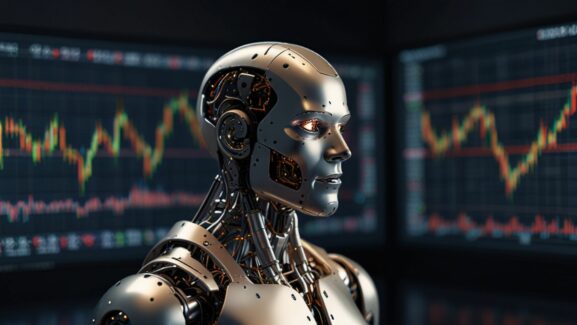The Rise of AI Influencers: A New Era in Social Media Marketing
In the ever-evolving world of social media, one trend is becoming increasingly evident: the rise of artificial intelligence (AI) influencers. With more than half of Gen Zers aspiring to be full-time influencers, the competition in the influencer market is fiercer than ever. But as the landscape changes, could AI influencers be the next big thing? And what does this mean for the future of influencer marketing?
A recent poll by Morning Consult revealed that Gen Zers are highly attracted to the idea of becoming influencers. Growing up watching their peers on platforms like YouTube and TikTok, they see the potential for fame and fortune. However, the reality is harsher than the dream. With a saturated market and ever-changing algorithms, it’s becoming increasingly difficult for traditional influencers to make a sustainable living.
Enter AI influencers. These digital personas, created using advanced AI technology, are gaining traction in the influencer industry. Companies like Meta and 1337 are investing in AI-generated characters with unique personalities and interests. These AI influencers can create content, interact with audiences, and even collaborate with brands, all without the need for human intervention.
Advancements in AI technology have made it more affordable and accessible to create AI influencers. Tools like Midjourney and OpenAI’s Sora allow for the generation of highly realistic content from simple text prompts. As a result, AI influencers are becoming an attractive option for brands looking to engage with consumers at a lower cost.
But what about authenticity? Isn’t that what audiences crave on social media? While AI influencers may lack the human touch, studies have shown that they can still have a positive impact on brand perception. According to the Journal of Advertising, AI influencers can produce similar brand benefits to human celebrity endorsers. However, there is a risk of reputational damage if things go wrong, as seen with Air Canada’s AI chatbot incident.
Despite these concerns, AI influencers offer several advantages over their human counterparts. They require less time and effort to manage, making them an ideal solution for brands looking to maintain a consistent online presence. Moreover, AI influencers can engage with audiences 24/7, providing instant feedback and support.
For Gen Z and Gen Alpha, the rise of AI influencers could mean a more competitive landscape. As AI technology continues to improve, the value of online influence is shifting. In this new era of influencer marketing, what matters most is not who is creating the content, but whether it resonates with the audience.
As Eric Schmidt and Jonathan Haidt wrote, AI super-influencers have the potential to manipulate people on a highly personalized level. While this raises ethical concerns, it also opens up new possibilities for marketers to target consumers more effectively.
In conclusion, the rise of AI influencers represents a significant shift in the influencer marketing landscape. While traditional influencers may not disappear entirely, AI influencers are poised to become a dominant force in the industry. As brands redefine authenticity, what matters most is the quality and relevance of the content. Whether human or AI, the future of influencer marketing is undoubtedly exciting.
Subscribe to our newsletter and never miss any hot AI news.



